"Hunger" and "Satiety" Hormones
According to the Institute of Nutrition, the nature of overweight and obesity is due to the amount of energy consumed being in excess of the amount of energy expended. Meanwhile, for many obese people, the most difficult thing is to control their appetite, leading to difficulty in losing weight.
Obesity is characterized by resistance to appetite-regulating hormones, leading to a misalignment between physiological signals of "hunger" and "satiety."
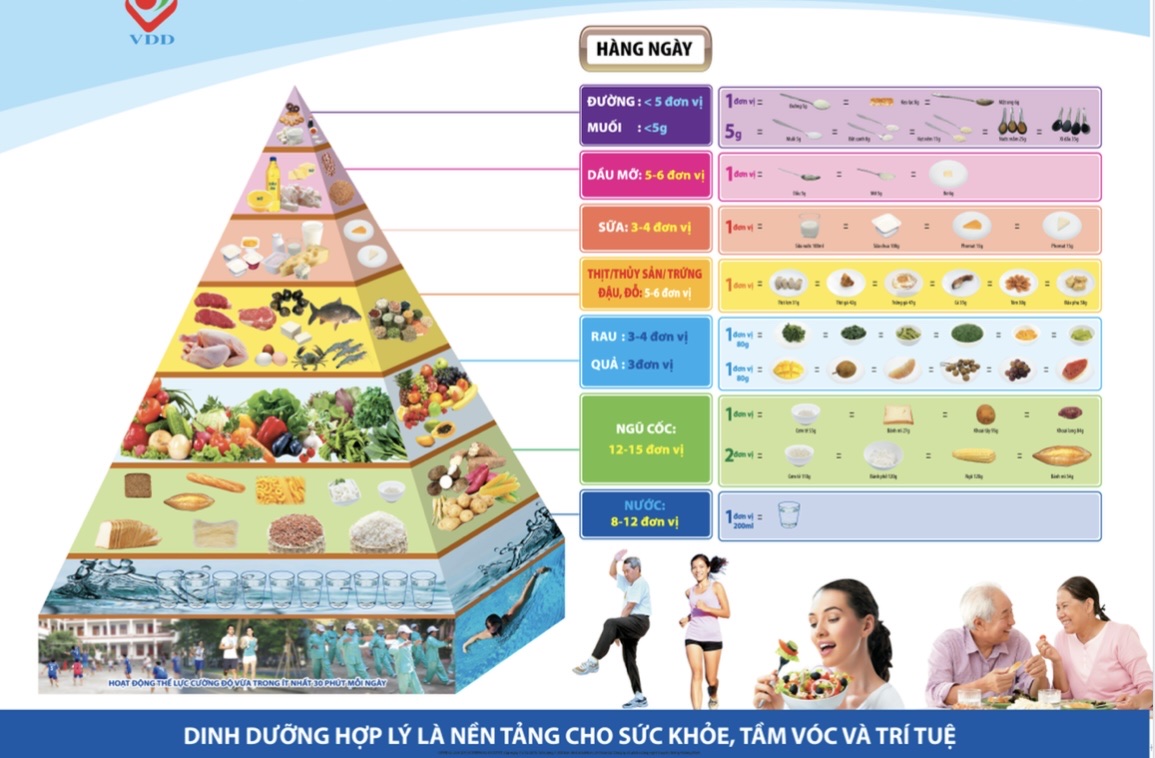
Increase green vegetables, balance foods for a healthy body
Regarding the body's hunger recognition mechanism, Dr. Ngo Thi Ha Phuong (Nutrition Institute) explained that when the stomach is empty, a hormone called ghrelin is produced. This substance enters the blood and goes to the brain, helping the brain receive messages from the stomach and causing a feeling of hunger in the body.
The main function of ghrelin is to increase appetite, causing more food to be consumed, more energy to be taken in, and fat storage.
In addition, ghrelin also affects human sleep-wake cycles, taste sensation, and carbohydrate (starch) metabolism.
When the stomach contains a certain amount of food, fat cells (which play a major role) and the stomach will produce leptin and release it into the blood, going to the brain (hypothalamus) to signal a feeling of fullness.
Leptin is a hormone derived from adipose tissue and the small intestine, mainly in enterocytes, that helps regulate energy balance by suppressing hunger.
However, people with obesity may become leptin resistant, meaning the "full" message doesn't reach the brain and the result is overeating.
Weight adjustment
Dr. Ngo Thi Ha Phuong said that ghrelin and leptin are two hormones that play an important role in regulating body weight.
Appetite increases due to increased ghrelin and conversely leptin - the "satiety hormone" - decreases.
In addition to their roles in appetite regulation, ghrelin and leptin also influence energy regulation, including the burning of calories and fat as well as the storage of fat for energy.
In addition to these two hormones, the endocrine system also produces and regulates additional hormones that interact with ghrelin and leptin.
Insulin regulates blood sugar levels and helps reduce ghrelin after eating. The hormone cortisol, also known as the stress hormone, stimulates ghrelin, which increases appetite.
Additionally, changes in reproductive hormones (estrogen, progesterone, testosterone), especially during puberty, pregnancy, or menopause, may affect ghrelin and leptin regulation.
When you feel full, it is beyond your body's needs.
According to Dr. Phuong, an imbalance of one of the two hormones (leptin and ghrelin) can lead to overeating and weight gain.
However, it is possible to help prevent this imbalance through a diet rich in fiber, healthy fats and adequate protein. At the same time, it is necessary to drink plenty of water, get enough sleep, reduce stress, and exercise regularly to maintain a healthy body weight.
Thus, to avoid overeating and gaining weight, you need a healthy diet with foods rich in fiber, whole grains and a reasonable amount of protein-rich foods such as lean meat, chicken, fish... You need to eat at least 400 grams of vegetables and fruits every day.
In particular, it is necessary to limit foods containing a lot of free sugars (some fast foods, sugary drinks). These foods cause blood sugar levels to spike and drop rapidly. When blood sugar levels drop rapidly, the body produces more ghrelin, which increases hunger.
Doctor Phuong noted that in daily eating, to control weight, we need to pay attention to ensure both fullness and "enough" to have the best nutritional and health status. We should stop when the body just stops feeling hungry, which means "halfway".
"If we feel full, it means we are eating more than necessary," Dr. Phuong noted.
It is necessary to eat enough recommended amounts of energy-producing substances such as: carbohydrates, protein, fat; and non-energy-producing substances that play a very important role in the growth and development of the body such as: vitamins, minerals, fiber.
Fiber is found in plant-based foods such as fruits, vegetables, whole grains, and beans. Fiber has a laxative effect, stimulates the activity of the large intestine, increases digestion, and is also an agent involved in eliminating oxidation products and toxic substances from the body, reducing the risk of colon and rectal cancer; helps control weight and lose weight in obese people.
Refined foods such as wheat flour and rice flour have significantly reduced fiber content.
For adults, the minimum recommended fiber requirement is 20 - 22 grams/person/day. Fiber comes from vegetables, fruits, and grains.
Every day, adults need to eat at least 400 grams of vegetables and fruits to supplement fiber according to recommended needs.
Overweight and obese people need to increase vegetables and fiber, because fiber itself also makes you feel full for a long time, controls cravings and does not increase blood sugar suddenly after eating.
(Institute of Nutrition)
Source link


![[Photo] The road connecting Dong Nai with Ho Chi Minh City is still unfinished after 5 years of construction.](https://vphoto.vietnam.vn/thumb/1200x675/vietnam/resource/IMAGE/2025/11/04/1762241675985_ndo_br_dji-20251104104418-0635-d-resize-1295-jpg.webp)

![[Photo] Panorama of the Patriotic Emulation Congress of Nhan Dan Newspaper for the period 2025-2030](https://vphoto.vietnam.vn/thumb/1200x675/vietnam/resource/IMAGE/2025/11/04/1762252775462_ndo_br_dhthiduayeuncbaond-6125-jpg.webp)

![[Photo] Opening of the 14th Conference of the 13th Party Central Committee](https://vphoto.vietnam.vn/thumb/1200x675/vietnam/resource/IMAGE/2025/11/05/1762310995216_a5-bnd-5742-5255-jpg.webp)




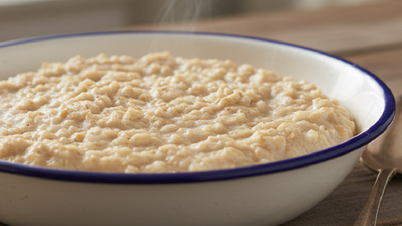



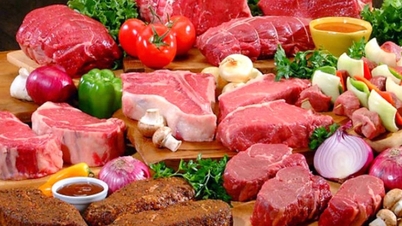

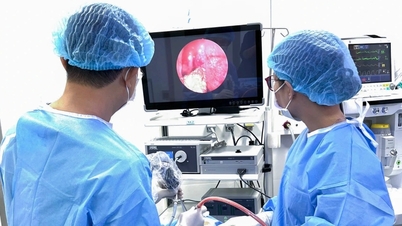








































































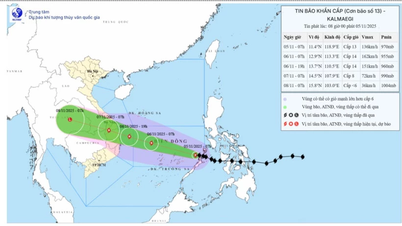















Comment (0)